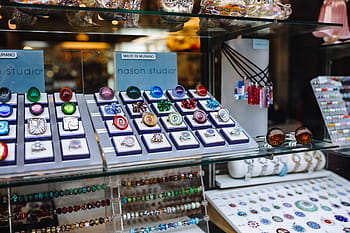A Beginner’s Guide to Cleaning and Preserving Ancient Coins
페이지 정보
작성자 Christy 댓글 0건 조회 2회 작성일 25-11-07 01:00본문

Handling ancient coins demands gentle attention, reverence for the past, and meticulous technique
Ancient coins are far more than currency; they are tangible relics of forgotten civilizations, bearing traces of ancient economies, cultural exchange, and daily routines
Never subject an ancient coin to bleach, ammonia, toothpaste, or any commercial cleaner—these can obliterate irreplaceable detail
Improper cleaning may scar the metal, dissolve ancient surface layers, and erase evidence that scholars depend on to date and interpret the coin
Always inspect the coin carefully under controlled illumination, ideally with a 10x or higher magnifying lens
Scan for greenish deposits, アンティークコイン投資 crusty residue, or telltale scratches from prior restoration efforts
Never force-remove hardened deposits—this can permanently mar the coin’s design
Let the coin rest in distilled water for 3–7 days, letting sediment gradually loosen
Distilled water is preferred because it lacks minerals and impurities that could react with the metal
Change the water daily and let the dirt loosen naturally
If the encrustation is powdery and the coin shows no signs of flaking, a gentle pass with a natural-hair brush may help—but never apply pressure
Avoid all household acids and bases—including citric acid, white vinegar, and baking soda paste
They risk dissolving fine details, corroding the metal, and permanently altering the coin’s appearance
Ultrasonic baths, while effective for modern metals, can fracture brittle ancient alloys and blast away delicate surfaces
Patina is not dirt—it’s a protective layer formed over time and often enhances historical authenticity
This natural coating acts as a barrier against moisture, oxygen, and environmental contaminants
After any gentle cleaning, dry the coin thoroughly with a soft, lint-free cloth
Keep coins in a temperature-stable environment, shielded from light and moisture
Opt for archival-quality Mylar sleeves, inert plastic flips, or buffered cardboard mounts
Always check labels—only use "PVC-free" storage materials
Store coins in airtight containers with desiccants to maintain low humidity
Professional conservators have the expertise and tools to evaluate and stabilize fragile ancient coinage safely
They have the training and tools to assess and preserve ancient coins safely
Remember, the goal is not to make the coin look new but to protect its integrity and history
The most valuable ancient coins are those that have survived with their original surfaces intact
Handle every coin as if it were a unique historical manuscript—its survival depends on your care
- 이전글15 Best Power Tool Set Deals Bloggers You Need To Follow 25.11.07
- 다음글중앙공원 롯데캐슬 어에서 멋진...<br>아주경제=이 24.11.20
댓글목록
등록된 댓글이 없습니다.
